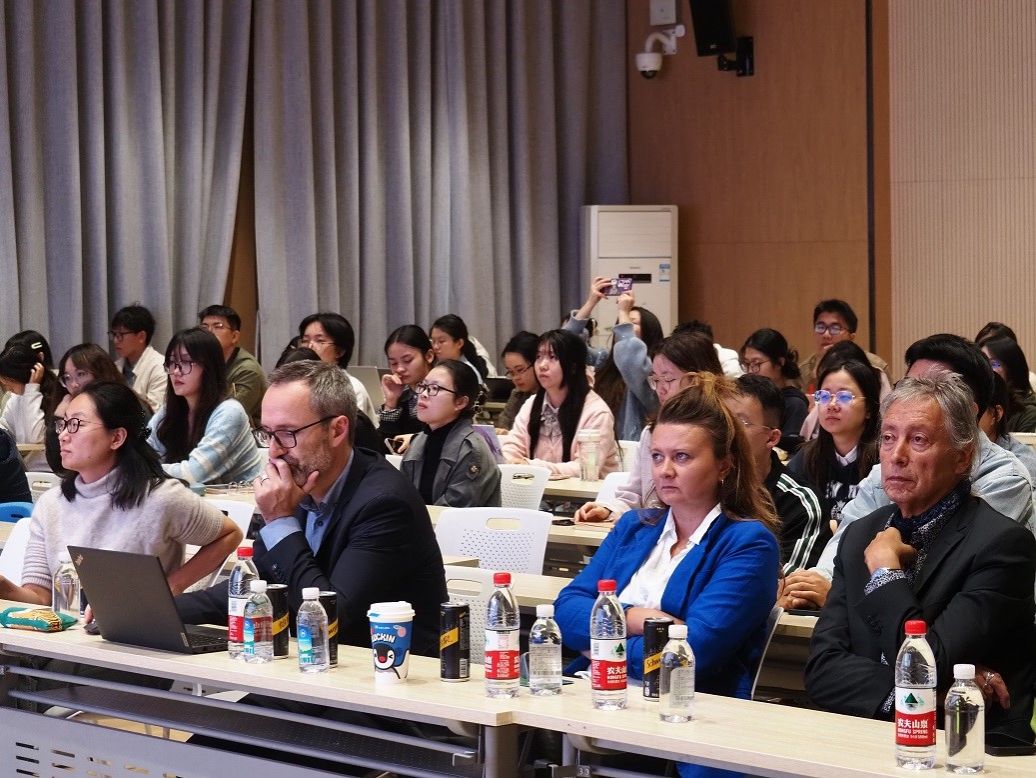
On the evening of October 24, 2024, two lectures themed on Alexander von Humboldt were presented to the faculty and students of the Foreign Studies College at Hunan Normal University. The lectures were organized by the Humboldt Center for Transdisciplinary Studies, aiming to share cutting-edge results from international Humboldt research.
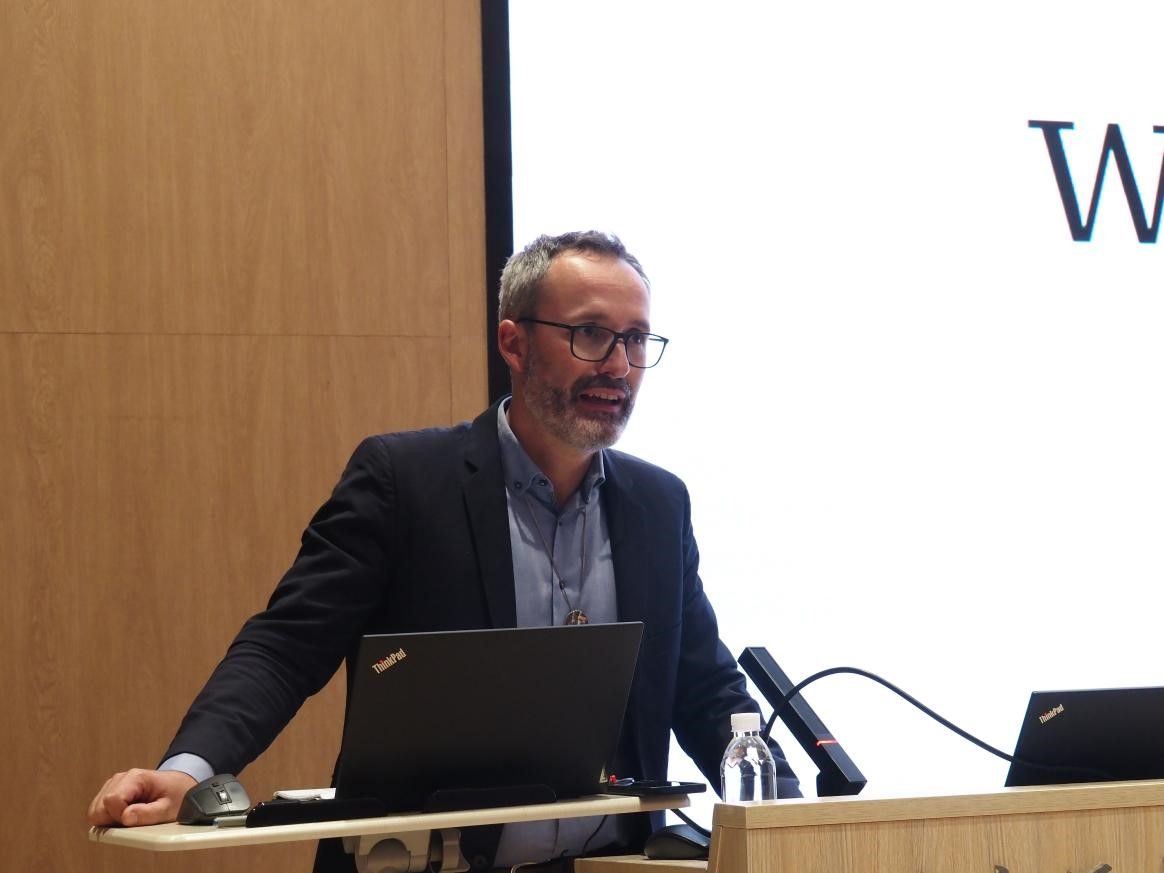
Dr. Tobias Kraft shared his insights on “European Perspectives on Ancient American Cultures, Cultural Studies" and how Humboldt understood and addressed the challenges of different cultures. Between 1799 and 1804, Humboldt visited Spanish colonies in the Americas, the Antilles, and the United States. Kraft analyzed Humboldt's travel journals and publications from this period to explore how he interacted with different social classes such as nobles, local elites, Spanish clergy, and government officials.
Dr. Kraft emphasized that during his travels in the American colonies, Humboldt not only encountered people of European descent but also had direct contact with the slaves and indigenous people. These experiences profoundly affected Humboldt, especially during his two visits to Cuba, where the local slavery left a deep impression on him. In 1826, Humboldt published a significant study strongly rejecting slavery and criticized the local elites openly for their lack of humanity and political vision.
However, Dr. Kraft noted that Humboldt's contact with enslaved people was never close nor personal; he looked at slavery and enslaved people as an observer. In contrast, Humboldt's direct contact with indigenous people was much more closer. In the markets of Quito, Lima, and Mexico City, Humboldt witnessed the lives of indigenous people firsthand. Along the shores of the Orinoco and the ridges of the Andes, Humboldt relied on the knowledge of local guides and spent time with different indigenous nations he had never heard of before.
Dr. Kraft's lecture was not only a review of Humboldt's life but also an exploration of how Humboldt influenced thoughts on indigenous peoples and cultures through travel and research. He emphasized that Humboldt's experiences gave him a deep understanding of cultural diversity, although he failed to fully resolve these tensions through language, discourse, or intellect.
At the end of the lecture, Dr. Kraft posed a key question: How do we understand the other? Although simple, this question is obviously very challenging. He encouraged participants to view the lecture as an invitation for dialogue and questions rather than a final conclusion about Humboldt.
Dr. Tobias Kraft is a German Literary scholar who works at the intersection of philosophy and digital humanities. Since 2015, he has led a long-term research project at the Berlin-Brandenburg Academy of Sciences and Humanities, dedicated to developing a digital edition of Humboldt. He also founded and managed the “Proyecto Humboldt Digital” (ProHD), a German-Cuban initiative to promote digital humanities and the digital scholarly edition of 19th-century colonial manuscripts (2019–2023).
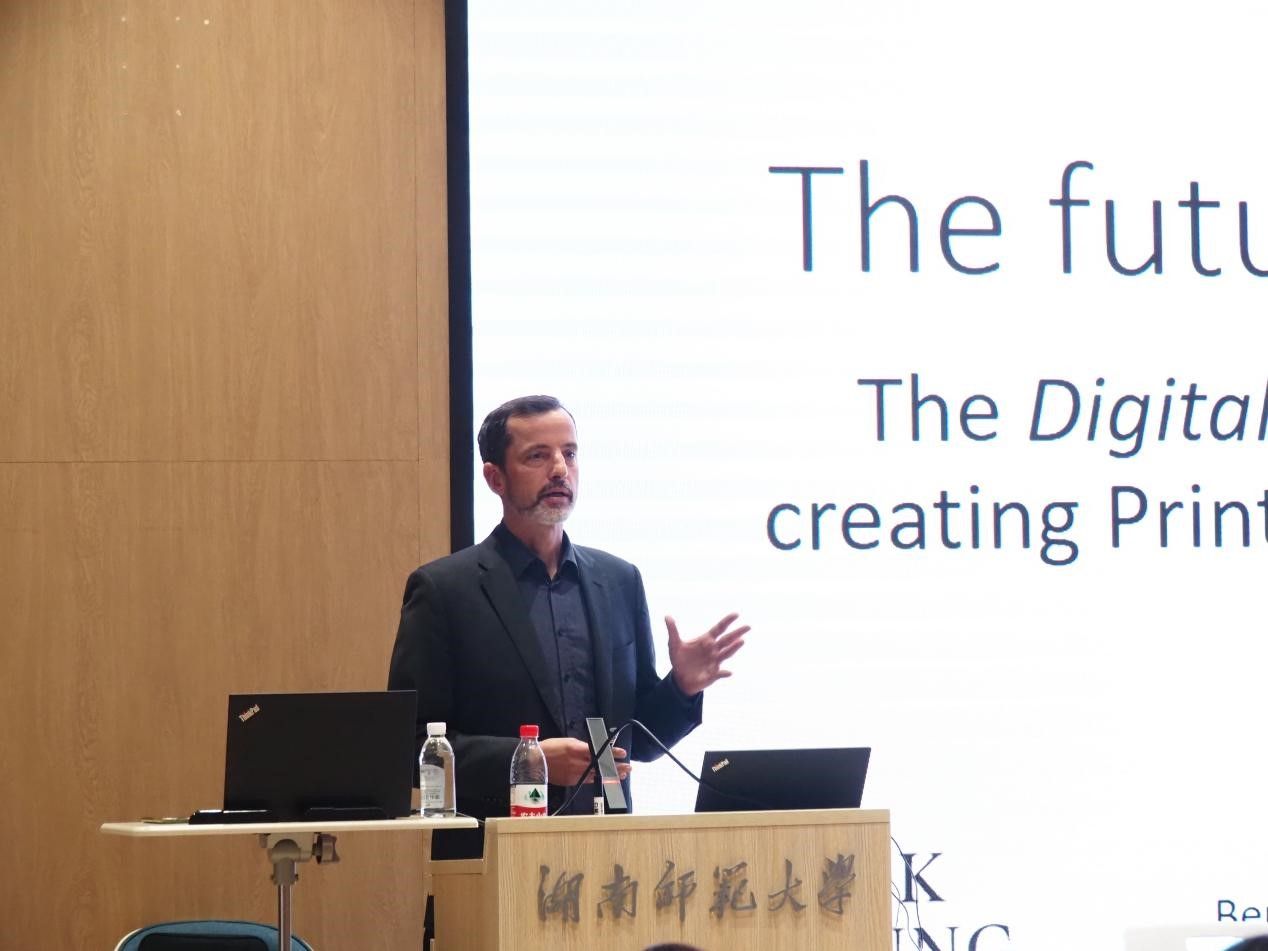
Dr. Christian Thomas's lecture, "The Digital Paradigm and Its Consequences for creating Print, Online, and Hybrid Scholarly Editions," began by introducing the concept of digital scholarly editions and emphasizing its differences from traditional print publishing, noting that digital scholarly editions aims to use digital technology to provide more interactivity and analytical tools. Dr. Thomas also detailed two hybrid projects underway at the Berlin-Brandenburg Academy of Sciences and Humanities and at the Klassik Stiftung Weimar: the Alexander von Humboldt Project and the Johann Wolfgang von Goethe Project. These projects aim to produce high-quality digital and print editions to meet the needs of different users.
Dr. Thomas discussed the challenges brought by digital publishing in his presentation, including how to effectively use artificial intelligence to assist with text recognition and translation, and how to ensure the sustainability of digital editions. He particularly emphasized the importance of maintaining transparency and reproducibility of data during the digitization process. During the Q&A session, Dr. Thomas discussed the potential and limitations of AI in academic publishing, arguing that although AI has made great strides in text recognition, its role is still limited when dealing with tasks that require in-depth historical understanding and linguistic nuances. Additionally, Dr. Thomas mentioned the potential for international cooperation in digital publishing, especially cooperation under different language and cultural backgrounds. He encouraged Chinese scholars to participate in international exchanges in digital humanities to enrich global academic resources.
At the end of the lecture, Dr. Thomas asked: Is there a future for print (in the digital age)? By comparing the advantages and limitations of digital and print editions, he believes that if the digital paradigm can be followed, even if the target medium is a print edition, the sustainability of the data can be maintained, then the print edition still has its value.
Dr. Christian Thomas has been working in digitization projects as the German Text Archive and the European infrastructure project CLARIN since 2009. Currently he is focusing on digital/hybrid scholarly editions of Alexander von Humboldt’s manuscripts and travel journals at the Berlin-Brandenburg Academy of Sciences and Humanities, as well as Johann Wolfgang von Goethe’s letters and diaries at the Klassik Stiftung Weimar. His PhD research focused on the digital edition and computational analyses of Humboldt’s Kosmos-Lectures.
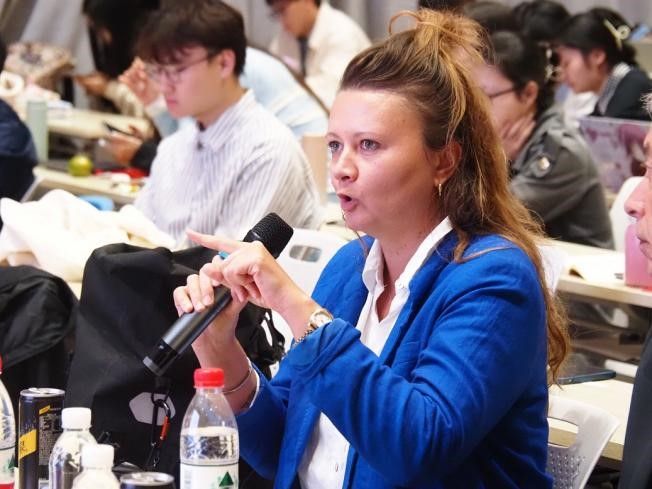
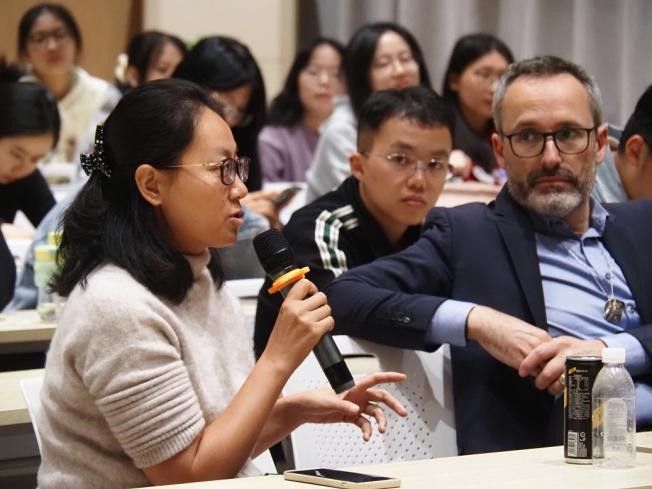
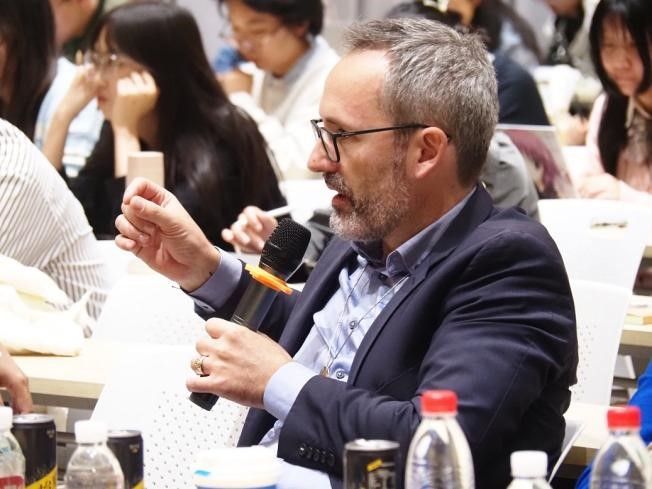
The lectures concluded amidst lively discussions. They are part of "Rethinking the World," the Second Humboldt Day series of events.